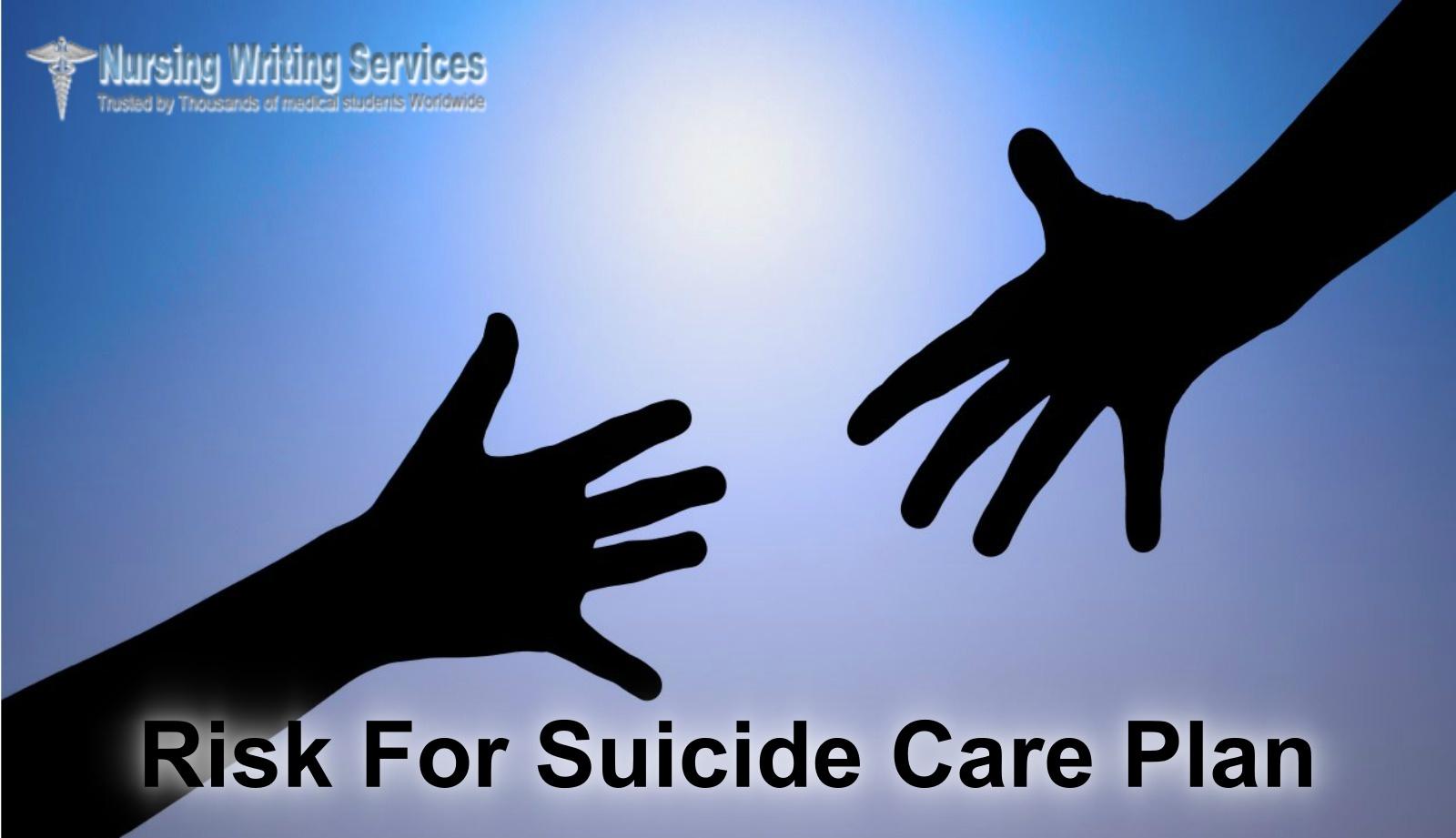
Suicide is a deliberate act to kill oneself. Suicidal thoughts are more in people with depression, personality disorders, alcohol and substance abuse. Risk For Suicide Care Plan Writing Services helps in coming up with a reliable and effective top quality Risk For Suicide Care Plans.
Environmental factors such as loss of a job, close family member, and presence of physical illnesses like HIV AIDS or cancer also play a role in suicidal behaviors.
Risk for Suicide Care Plan Diagnosis
The risk for suicide is not an illness with a precise diagnosis. A caregiver can look for these behavioral trends to establish if a patient is contemplating suicide.
- Making statements of despair, hopelessness, and helplessness
- Claims about nothing to live to for
- Presence of lethal items and mean to pursue the suicide plan
- Talk, plan or actual attempt to commit suicide
- Suicide cues. a. Covert e.g., giving valuables away, taking expensive life insurance policy, writing or changing a will b. Overt: Patient makes claims like "I am better off dead, " or "there is nothing good about life."
Risk for Suicide Care Plan Desired goals and Outcomes
A nursing care plan for suicidal patients involves providing them with a safe environment to initiate a no-suicide attitude, creating a support system and ensure that there is close supervision until the patient departs from the idea.
It should enable the caregiver to help the patient in recovery from the suicidal mentality and achieve these outcomes:
- Refrain from attempting suicide
- Make a no-suicide contract with a nurse if the patient is in a hospital
- Agrees to subscribe to nursing interventions and support methods
- Attend crisis counseling including attending with family
- Accept to stay under the watch of family or friend
- Find links with community self-help support groups
- Starts identifying future goals thus giving a reason to live
- Adhere to counseling appointment schedule
- Identify one or few alternatives to the current situation
- Identify the person to contact in case of recurrence of suicidal thoughts
Risk for Suicide Care Plan Assessment
Most likely, a suicidal patient will deny trying the act. A caregiver can determine if a patient has suicidal thoughts by making these critical assessments to determine what caused the patient to consider suicide and define necessary interventions.
- Previous suicidal attempts
- Depression
- Drug and alcohol abuse
- Psychiatry disorders
- Recent family problems such as divorce, separation or
- Bereavement
- Loss of income or inability to meet financial obligations
- Chronic pain
- Anger towards "messenger" of specific information including nonhuman media
Risk For Suicide Care Plan Rationales and interventions
A care plan should make crucial interventions that make the patient comfortable and to turnaround from planning suicide.
Help the patient to overcome the crisis
It helps the patient to change their perspective on life and get hope for the future. A health worker can help a suicidal patient by convincing the person that the crisis is temporary, there is help available and it is possible to survive the unbearable pain.
Administer tranquilizers on prescription
Give tranquilizers for 1 to 3 days when the patient is extremely anxious or has not slept for days. Relieving anxiety and restoring sleep helps in achieving clearer thinking and restores a sense of well-being.
Discourage the patient from making decisions during crisis
Clear thinking and evaluating options might be impossibility during a time of crisis thus increasing anxiety and hopelessness. Both may cause a person to contemplate suicide for failing to progress.
Encourage the client to discuss feelings
When the patient discusses feelings freely, it is easy for caregivers and counselors to determine alternative ways to sort anger, frustration, and disappointment. Giving a patient alternatives solution for strong emotions creates a sense of control to displace an urge for suicide.
Make arrangements for patient to live with family or friends
Staying with other people relieves isolation, reestablishes the special connection and shows the patient that there are people who care about him or her. It is also essential for comfort.
Create a safe environment
Ensure safety of the patient by removing anything that the patient could use for self-harm such as pills, belts, weapons or sharp objects.
Keep accurate records of the patient's activities
An accurate chart is an essential reference document during follow up on the patient's progress and choosing the right interventions.
Arrange hospitalization
A hospital admission is necessary if the person is highly suicidal for safety purpose or if there is no other person to offer care.
A follow-up program and continuing counseling are essential to help the patient in abandoning suicide thoughts.
It is often challenging to understand how to write a perfect Risk For Suicide Care Plan make you wonder how to come up with a quality care plan. It's in such situations that Risk for Suicide Care Plan Writing Services come in handy to help. One should choose the best Risk for Suicide Care Plan Writing Services provider like Nursing Writing Services to get reliable and effective Nursing Care Plans Writing Services. Our writers have vast experience in the writing and have worked with different groups of nurses and students backed with training in medical and nursing sciences. This makes us stand out as the best Risk For Suicide Care Plan Writing Services provider. With a reputation as the leading Risk For Suicide Care Plan Writing Services, we are committed to make sure our clients get the value of their money.

